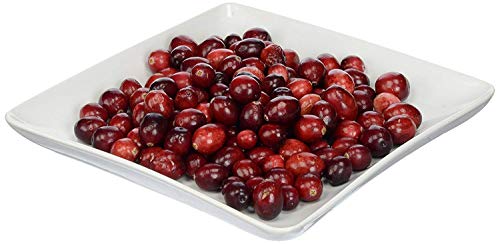Disclosure: This post may contain affiliate links, meaning we get a commission if you decide to make a purchase through our links, at no cost to you. Please read our disclosure for more info.
Last Updated on December 7, 2022 by
Berries are small, edible food with pulp. Typically they are small, colorful, juicy, round, and sweet and sour. Its botanical name suggests that it is a pit-free, fleshy fruit produced from a single ovary flower.
There are approximately 400 different berry species in the world. Generally, berries contain seeds and are rich in nutrients, vitamins, minerals, and antioxidants.
Berries have innumerable health benefits, from boosting the immune system and reducing inflammation to enhancing memory. Moreover, they can be easily consumed by adding in smoothies, jams, baked items, or taken in the form of supplements like elderberry gummies by the Gummies Garden , organic elderberry with vitamin C by the Garden of Life, Organic Goji berries by Navita, etc.
In This Post:
Types of Berries
1. Blueberry
Blueberries are native to North America. They are bluish-purple, which gave them their name. They contain potassium, antioxidants, vitamin C, Vitamin K, fiber, and folate.
Health Benefits of Blueberries
The king of antioxidants, blueberries lowers blood pressure, protects your body from cholesterol damage and cancer. Blueberries are also known to reduce DNA damage and slow the cognitive aging process and wrinkles.
2. Raspberry
Usually, raspberries grow on bushes and shrubs. They are very low in calories which makes them an ideal diet food for weight loss. In addition, the fiber content in raspberries is high, and it contains antioxidants, minerals, and essential vitamins.
Health Benefits of Raspberries
There are many health benefits of raspberries worth mentioning. It fights against cancer, obesity, diabetes, and arthritis. It is a powerful antioxidant with anti-inflammatory properties. Also, it contains anti-aging properties, which slow down the ageing process. They can easily be consumed at any time in the form of either supplements or in desserts and baked goods.
3. Strawberry
Strawberry is everyone’s favorite bright red colored fruit. It is juicy and sweet but slightly acidic. Botanically it is not perceived as a true berry as it is derived from a flower containing more than one ovary. However, it contains polyphenol, antioxidants, nutrients, and fiber.
Health Benefits of Strawberries
The most significant health benefit of strawberries is that it is packed with good cholesterol also known as HDL. It lowers blood sugar level and is fat-free, sodium-free, and cholesterol-free. It is a low-calorie food beneficial for weight loss.
4. Blackberries
One of the most well-known types of berries is blackberry. Its shrub grows 10 feet in length and produces soft-bodied blackberries typically used in jams, desserts, jellies, etc. Blackberries are very easy to grow and contain high amounts of Vitamin C and antioxidants. They also contain two grams of protein and eight grams of fibre.
Health Benefits of Blackberries
Blackberries provide the consumer with half of the daily recommended value of Vitamin C. It is packed with antioxidants, polyphenols that boost brain function, fiber and vitamin K. It also supports oral hygiene and health care. In addition, it is a good source of magnesium and vitamin K.
5. Cranberry
Cranberries are hard, round, and small fruits of red color. They typically grow on vines in bogs of freshwater. It is usually grown in Northern America and Southern Canada.
Health Benefits of Cranberries
Cranberries are a wealth of benefits and nutrients. They are rich in antioxidants and anti-inflammatory properties. It also enhances the strength of our urinary tract. It also aids the digestive system by easing constipation and reducing the risk for cancer.
5. Boysenberries
Boysenberries are a cross between blackberry, raspberry, and dewberry. It is a deep maroon-colored fruit with large seeds. Even the average size of the fruit tree includes fiber, minerals, and antioxidants.
Health Benefits of Boysenberries
Boysenberries can aid in lowering blood pressure and prevent fat absorption. In addition, it protects against cognitive aging, Alzheimer’s disease, and cell damage. It contains many minerals like magnesium, potassium, iron, and calcium.
6. Lingonberry
Lingonberry fulfills 139 percent of our recommended daily manganese content. It is also called super fruit due to its excessive nutritional content. They also contain an abundant amount of flavonoids, antioxidants, and anti-inflammatory agents.
Health Benefits of Lingonberry
Lingonberry promotes eye, heart and gut health. It also helps the body in strengthening the connectivity of the bones, hormone. It also aids in weight loss, cancer risk, and support in eye and heart health. It also helps with connectivity issues.
7. Elderberry
Elderberry grows on the tree of the elderflowers and is the most commonly used immune-boosting fruit. It also reduces cold, aids in respiratory system functions and controls stress and inflammation. They contain adequate amounts of iron, copper, potassium, or phosphorus and have been used as a medicine for centuries.
Health Benefits of Elderberry
Elderberry is a wealth of benefits. It is packed with vitamins and antioxidants to boost your immune system function. As a result, they reduce inflammation, stress and protect your heart from diseases. They are also known to ease cold and flu symptoms.








